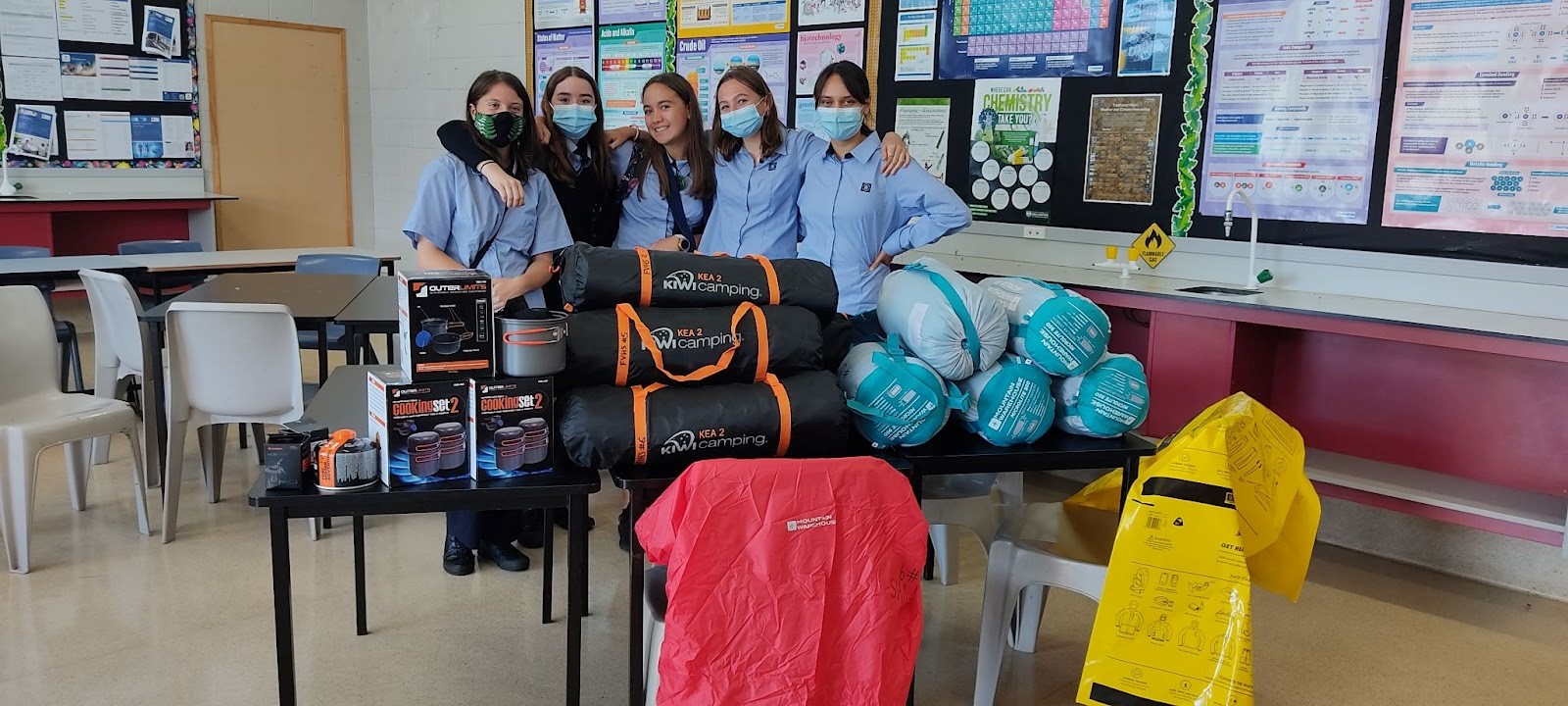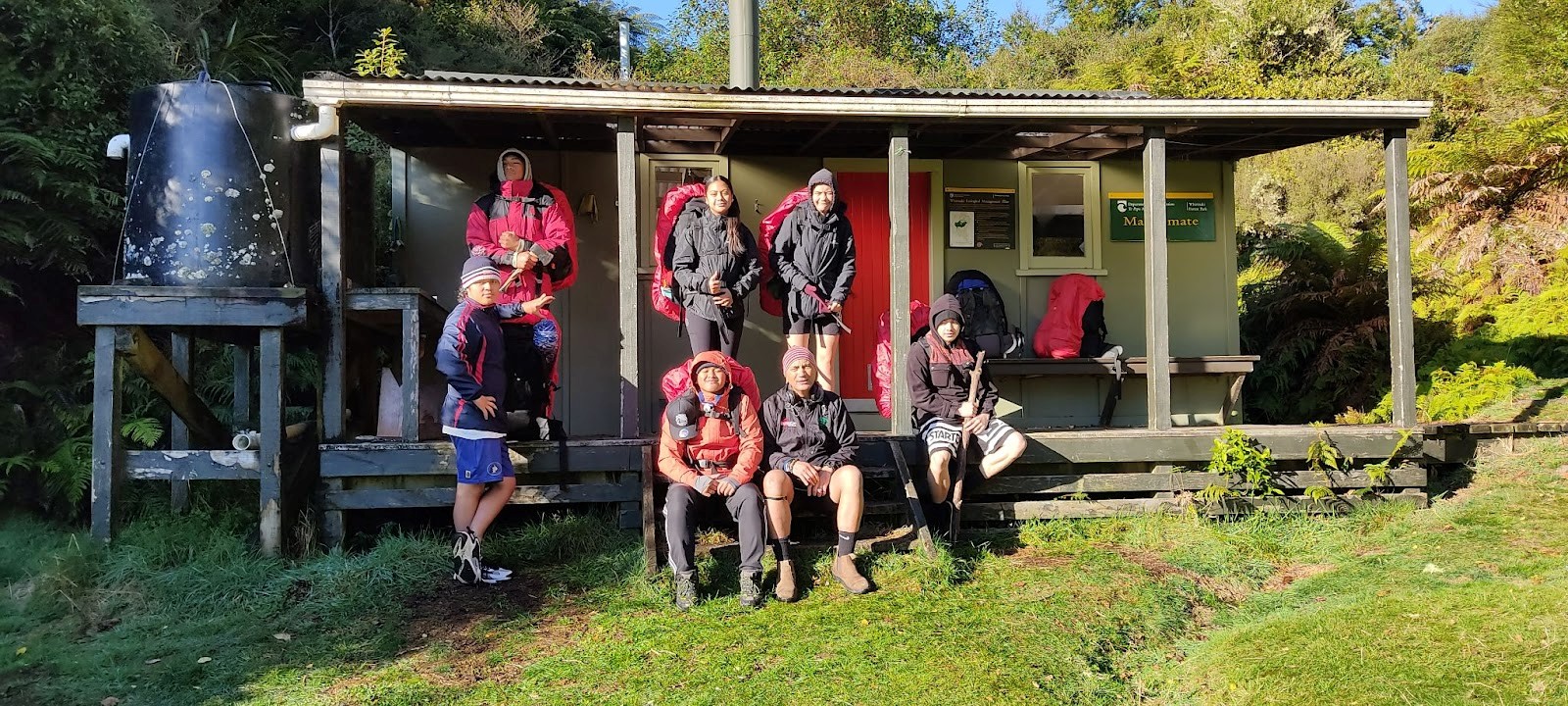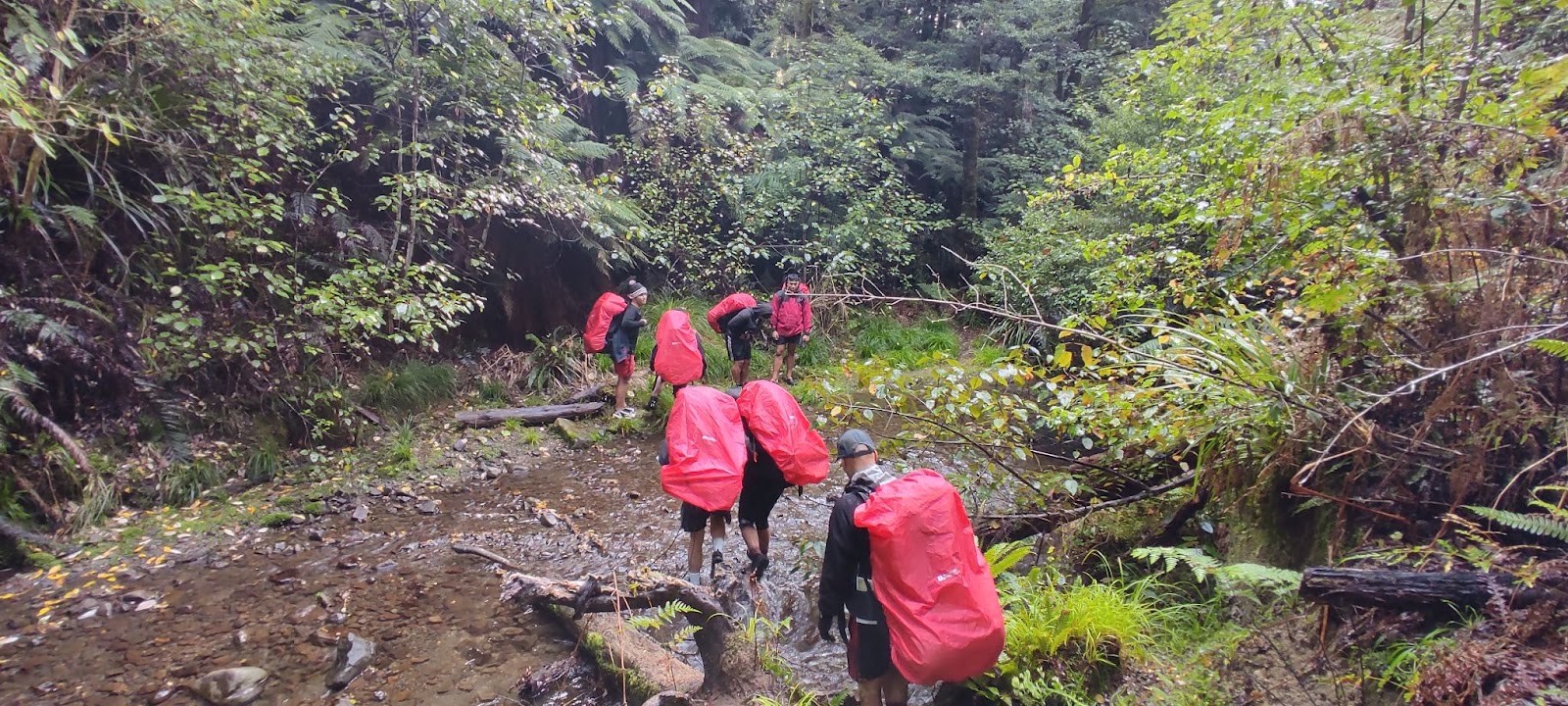2021 "Grants For Good" Spotlight Interview
Forest View High School
We are delighted to see our funding and resources are helping students at Forest View High School to participate in the Duke of Edinburgh's Award, an international award available in over 130 countries for young people ages 14-25.
1. Tell us a bit more about yourself (organisation)?
My name is Elise Tilsley and I am a teacher at Forest View High School in Tokoroa. I have been at Forest View for 3 years now and absolutely love working at our school and with our community. We have about 400 students from Year 9 to 13 and offer a variety of extra-curricular activities, including Duke of Edinburgh.
The students at our school are always looking for new challenges and experiences but are often limited by cost associated with these experiences. The location of our school means we have a variety of outdoor activity locations right at our doorstep. These factors drove me to put a proposal together to make our school an accredited Award Centre so that students would have access to the amazing opportunity that is completing the Duke of Edinburgh Awards.
2. What are you doing? Or What is the primary focus of your research?
Last year, I decided I wanted to set up our school as a Duke of Edinburgh Award Centre which would allow students to participate in the Duke of Edinburgh Award to gain each of the three levels (Bronze, Silver and Gold). Each level requires commitment across 3 areas over a given period of time, which increases at each level. These areas include skill, service, physical recreation and adventurous journeys.
I wanted to give our students the opportunity to participate in an award that is globally recognised and is currently running in over 130 countries. As someone who personally completed each of the three award levels while I was in high school, I can attest to the personal growth and confidence that this award fosters in rangatahi.
3. What inspired you to do what you’re doing?
During the first year running the award at our school, I found that there were many students interested initially, but the financial barrier of registration and gear costs meant that they could not participate in the award. My goal for setting up the award unit at our school was to encourage all students to participate in the award and give them opportunities to become confident, connected members of our Tokoroa community.
Each level of the award requires students to put themselves out there, whether it be learning a new skill, playing a new sport or volunteering their time to help someone in the community. I want to give each student the same access to opportunities that others would have and if removing the cost barrier is all it takes, then that would be amazing.
4. Why did you choose to focus on this topic?
As someone who personally completed the Duke of Edinburgh Award in high school, I feel that it was such a worthwhile experience and contributed to the person I am today. It teaches important lessons of perseverance, dedication and confidence as well as how to deal with challenging situations. The adventurous journey section of this award requires students to complete two hiking journeys (2 days, 1 night at Bronze level, 3 days 2 nights at Silver) where they must first complete learning modules to ensure they have the skills to conduct themselves safely outdoors.
I think that this is such a valuable section of the award as in New Zealand we are so lucky to be surrounded by beautiful native bush that we are free to explore. I wanted to give students the confidence and knowledge to explore the outdoors safely as well as giving them the opportunity to experience the outdoors in a way they may not have previously – staying in huts, camping, multiday hiking.
5. What made you decide to apply for an HealthCarePlus Grant for Good? (where did you hear about it)
I am a PPTA member and receive their newsletters each month. I saw that HealthCarePlus offered the Grant for Good and thought that this would be my solution to involving more students in the Duke of Edinburgh Award by removing the cost
barrier of registration and purchasing a group set of equipment so that students and their families would not have to worry about finding specialist equipment. This would mean that any student could participate and would not be excluded to their financial capability to fund the award. The purchase of equipment is also a long term investment and will allow students each year to participate.

Forest View High School with gears purchased from our funding
6. How was your experience in Appling for the grant?
The application process was very straight forward. The information packs were very clear and contained all of the information I needed to make the application. The communication from HealthCare Plus was timely and I did not have to wait long at all to hear the outcome of the application. I was also in touch with John who answered my emails very promptly and gave me advice on when I could purchase items as well as
answered any questions I had about the quarterly reports and other aspects of the grant.
7. How has funding from HealthCarePlus helped? (to advance your research)?
In the first year I ran Duke of Edinburgh at our school, we had 5 students in total register for Bronze level. In 2022, we have had 12 students register for Bronze and 2 students continue on to Silver level. This is a huge increase in student numbers and is undoubtedly the result removing the cost barrier of registration and removing the need to have access to specialised camping equipment such as tents, camp cookers, pack covers and liners and sleeping bags. Without the HealthCare Plus Grant, many of these students would not have had the opportunity to participate in the award and have the opportunity to experience what they have so far this year.

The two Silver DoE students accompanying the Level 3 Outdoor Ed class to complete their first practice journey (2 nights, 3 days)
8. What does this grant mean to you?
This grant has meant that I can give all akōnga the opportunity to participate in the award without the barrier of cost involved. Having equal access to the same opportunities as those financially capable is so important as it shows these students that they can succeed no matter what their financial status is. It has meant that I could purchase vital specialist hiking equipment such as sleeping bags, camp cookers, pack liners and rain covers as well as tents. These items have been vital in getting students involved in the award as they no longer have to incur the cost of sourcing the items themselves or facing the stigma of not being able to afford it.

River crossing and standing by one of the huts they camped outside.
9. What would you say to others considering but hesitant in applying for a grant?
Just go for it and back yourself and your ideas, the worst that can happen is that your answer is no. The best that could happen is that the answer is yes and you can make a substantial difference to the lives of those who would benefit most
10. What advice would you give to future Grants for Good applicants?
As long as you keep the interests of those you want to help in mind, there is no dream too big or challenge too difficult that can’t be solved. Think about what you really want to achieve with your grant, how can you make the most impact so that it reaches the most people.
11. What are you hoping to achieve?
I am hoping to expose rangatahi to new and exciting opportunities which allow them to develop into confident, determined young adults who can preserver and tackle any
challenge in their path. At our school we also have a saying which I stand behind and
think applies to this; “See more, Do more, Be more”. These awards allow students to challenge themselves and their ideas about themselves so that they can become the best version of themselves with all of the skills required to be successful when they go out into the world.
12. In what way will your project/course help make a positive impact on others?
Students are getting involved in community volunteering projects, sports teams and learning new skills. All of these activities have a positive impact on both students participating in the award and the community, as they are creating lifelong connections. For example, we have one student who has taken up quilting to make blankets for the Waikato Hospital Neonatal Unit. We have students making emergency foil blankets for the homeless as well as students taking leadership opportunities to coach sport teams and be leaders within school. This award supports both mental and physical health which I think has a positive impact on students participating, particularly in the tough times we have seen recently.
If you are interested and want to know more this year's Grants for Good and how to apply for one then click below.

Leave a comment